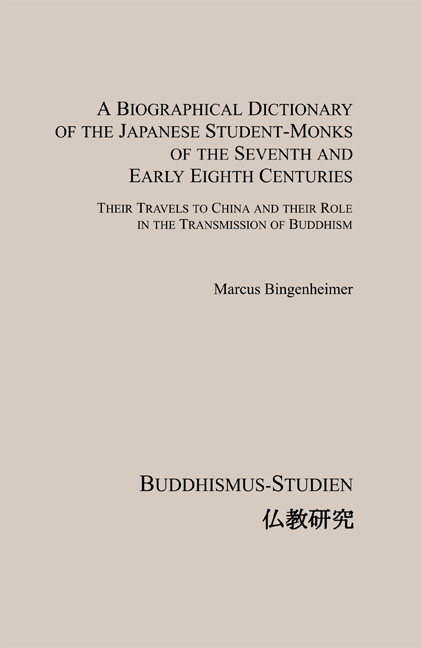|
 Bingenheimer, Marcus Bingenheimer, Marcus
A Biographical Dictionary of the Japanese Student-Monks of the Seventh and Early Eighth Centuries. Their Travels to China and their Role in the Transmission of Buddhism
(Buddhismus-Studien / Buddhist Studies 4)
2001 • ISBN 978-3-89129-693-6
138 S., kt. · EUR 17,50
Haus der Japanischen Kultur (EKO), Düsseldorf (Hg.)
The early Japanese student-monks, the monks who went to Sui and Tang China to study Buddhism, have attracted relatively little attention. This is mostly because the textual evidence concerning their voyages is scarce and their biographies can be reconstructed only very tentatively. Any attempt to outline a picture of their activities has to rely heavily on information preserved in the highly biased sources of official secular and Buddhist historiography.
This study gives an outline of the historical setting and examines the role of the student-monks in the transmission of Buddhism. In the biographical dictionary section, the author presents the existing information for 54 Japanese student-monks. These are all the monks known to have gone to China between 607, when the first embassy to the Sui departed, and 732, when Fusho and Yoei were sent on an adventurous journey to find competent Vinaya masters in China and invite them to Japan. Their search resulted in the coming of Ganjin, with whose arrival in Japan the transmission of the Nara schools of Buddhism came to an end.
|
